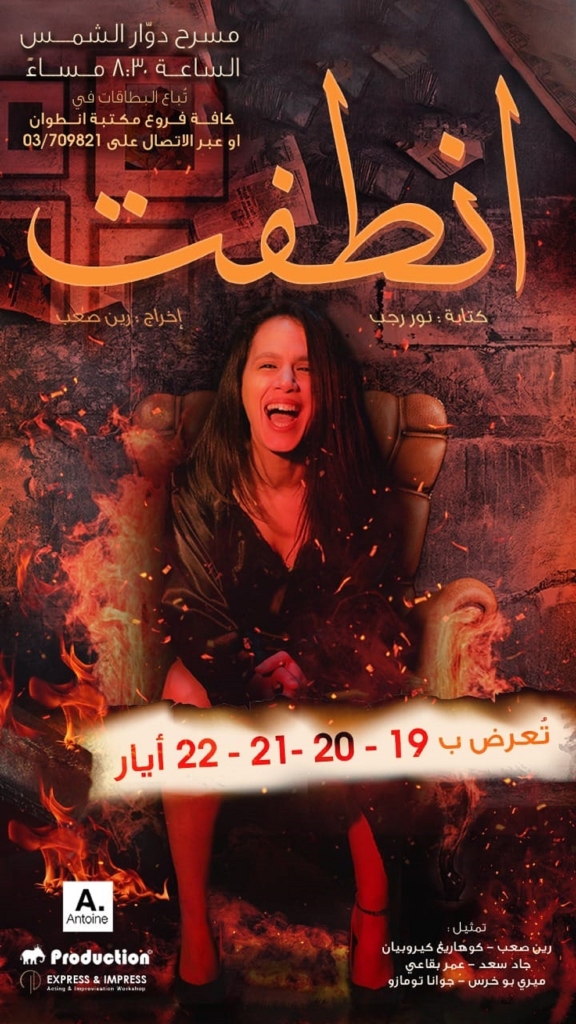The play, played on the Sunflowers stage, begins with the funeral scene, when we discover that Youssef’s wife died in a fire in the bedroom, and his wife Salah miraculously survived. Through a mourning scene, we are introduced to other characters: Suad, the son of Yousef and Salah Al-Gabei, Haroun, the neighborhood blessing maker, Nakhla, the girl of the night, and a monk who became a judge as events unfolded.
The knot begins when the monk starts reprimanding Salah for not looking sad and depressed. Fast forward to the court scene taking place in the house and the monk becomes the judge and starts blaming Salah for his murder. wife. In a funny incident, Salah instructed his neighbors, Harun and Nala, to protect him. After that, a long court scene began showing Salah’s turbulent past as a “broom” (as he said) and how he fell in love with Yousef. We also learned that Youssef and Salah deceived the residents of the area through the “Statue of Saint Sheila” and the donation fund, which all went to them. The accusations against Salah intensified after these facts were revealed, especially the fact that Yousef had betrayed Salah along with neighbor Nakhla. But Salah argues to himself, logically, that poverty motivated him to create the legend of Sheila, which is believed to be because people are fond of illusions. He also proved that he loved his wife and he could not afford to kill her to convince the judge and acquit him, but in the end, while he was alone on stage, he confessed that he had killed and burned her because it had deceived him. , and it was he who burned him psychologically before he burned it. The themes of the play range from critiques of the judiciary, ruling class, class society, and societal decisions on women as it shapes the concepts of good and evil, faith and infidelity, according to her personal interests.
The cliched comedy and serious scenes are dishonest
But the text of the play has no logic, tries to directly symbolize, enters the scene in court, but does not create logic for the world of the play, or for the circumstances of the relationship of the characters to each other, their attitude to world around them. events, which create great confusion in how to realize events, because the dialogue is based on how to present the joke rather than clarify an idea or create logic specific to the world of drama. This resulted in stereotyping of characters, unfair performance exaggeration and huge gaps in the transition from comedy to tragic scenes. Directing more confusing things as the rhythm of the presentation fell almost in half and fell into the trap of elongation, making the comedy and the serious scenes vulgar.
But the main thing is the idea of presentation. Salah’s character is portrayed as hurt, having lived through a lot of cruelty in his life, especially from his partner who cheated on him, but does this justify the murder? Does it justify murder by exposing the wrongdoing of the individual in terms of big concepts such as bias and existential, social and even personal injustice?
The show suffers from technical and conceptual problems with the legality of murder, as well as what injustice or betrayal can do, and what is the place to justify evil deeds such as theft, fraud, and murder in context. of poverty, injustice, and psychological abuse.that women are exposed today and these issues are causing negative confusion in the view of the show and its subject matter is sensitive in our society.
Source: Al-Akhbar
